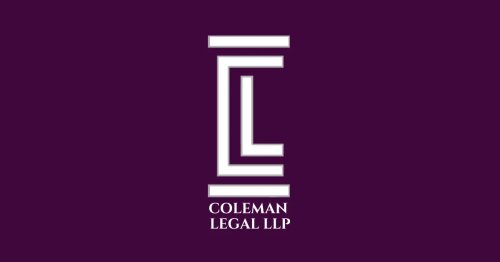Best Faith-Based Law Lawyers in Dublin
Share your needs with us, get contacted by law firms.
Free. Takes 2 min.
List of the best lawyers in Dublin, Ireland
About Faith-Based Law in Dublin, Ireland
Faith-Based Law in Dublin, Ireland, addresses the intersection of religion and legal frameworks. It involves the consideration and application of religious beliefs and doctrines within the legal system. This area of law is significant in a multicultural society where individuals may seek to resolve disputes or legal matters in accordance with their faith traditions. While Ireland's legal system is primarily secular, Faith-Based Law can play a role in family law, mediation, and other areas where religious principles may be considered or used to guide the resolution process.
Why You May Need a Lawyer
There are several situations where individuals might seek legal assistance in Faith-Based Law in Dublin. These can include matters related to marriage or divorce where religious customs need to be recognized, inheritance issues where beneficiaries dispute the interpretation of faith-based directives, or employment disputes involving religious discrimination or accommodation. Additionally, community members may require guidance on how their faith traditions interact with Irish law, or vice versa, especially in contractual or civil matters.
Local Laws Overview
The legal landscape in Dublin, concerning Faith-Based Law, adheres to national legislation while respecting the rights of individuals to practice and observe their religious beliefs. Key aspects of this include the Equal Status Acts, which ensure non-discrimination based on religion in various spheres such as employment and education. Furthermore, family law allows religious considerations during mediation and dispute resolution processes. It is also crucial for faith-based organizations to comply with charity laws and policies while operating within their religious framework.
Frequently Asked Questions
What is Faith-Based Law?
Faith-Based Law refers to legal processes and considerations that incorporate religious beliefs and doctrines into legal matters and practices.
Can Irish courts enforce religious laws?
While Irish courts operate under a secular legal framework, they may consider religious laws when they are relevant to the case, particularly in family law and contractual disputes.
How does Faith-Based Law affect marriages in Ireland?
In Ireland, marriages must comply with civil requirements, but individuals can also have their marriage solemnized according to religious traditions. This often involves both a civil and religious ceremony.
How are divorces affected by Faith-Based Law?
Divorces in Ireland are governed by civil law, but during the mediation process, religious considerations may be accounted for, especially regarding the welfare of children and property disposition.
Do faith-based organizations need to follow employment laws?
Yes, faith-based organizations must adhere to national employment laws, including those related to discrimination and equality. They may, however, have exceptions in certain religious contexts.
Can religious beliefs be considered in legal disputes over wills?
Yes, in cases involving the interpretation of wills, a testator’s religious beliefs may be considered if it is evident that such beliefs influenced the document.
Are there any legal protections for practicing one's faith at work?
Yes, under the Employment Equality Acts, employees are protected from discrimination based on religion and are allowed reasonable accommodations to practice their faith, provided it does not disrupt the business.
What happens if there's a conflict between civil law and religious practices?
In cases of conflict, civil law generally prevails, but courts try to navigate these situations with sensitivity to religious freedoms and practices.
Is mediation available for religious disputes?
Yes, mediation provides a platform for resolving disputes through dialogue that respects religious beliefs and practices, often facilitated by a mediator familiar with these contexts.
Where can someone find a lawyer specializing in Faith-Based Law?
There are law firms and individual practitioners in Dublin with expertise in Faith-Based Law. These can often be found through professional legal directories or community recommendations.
Additional Resources
Individuals seeking further information or assistance can consider resources such as the Irish Human Rights and Equality Commission for guidance on religious rights, the Law Society of Ireland for finding specialized legal practitioners, and local faith-based organizations that may offer advice and support in navigating Faith-Based Law matters.
Next Steps
If you need legal assistance in Faith-Based Law in Dublin, consider consulting with a lawyer experienced in this field. Begin by gathering any relevant documents and outlining your concerns or questions. You can contact the Law Society of Ireland for recommendations on qualified attorneys, or ask for referrals from faith-based organizations that might have partnerships with legal professionals. Preparing detailed notes on how faith-based issues intersect with your legal situation can also help your lawyer provide tailored advice.
Lawzana helps you find the best lawyers and law firms in Dublin through a curated and pre-screened list of qualified legal professionals. Our platform offers rankings and detailed profiles of attorneys and law firms, allowing you to compare based on practice areas, including Faith-Based Law, experience, and client feedback.
Each profile includes a description of the firm's areas of practice, client reviews, team members and partners, year of establishment, spoken languages, office locations, contact information, social media presence, and any published articles or resources. Most firms on our platform speak English and are experienced in both local and international legal matters.
Get a quote from top-rated law firms in Dublin, Ireland — quickly, securely, and without unnecessary hassle.
Disclaimer:
The information provided on this page is for general informational purposes only and does not constitute legal advice. While we strive to ensure the accuracy and relevance of the content, legal information may change over time, and interpretations of the law can vary. You should always consult with a qualified legal professional for advice specific to your situation.
We disclaim all liability for actions taken or not taken based on the content of this page. If you believe any information is incorrect or outdated, please contact us, and we will review and update it where appropriate.











